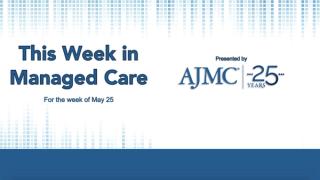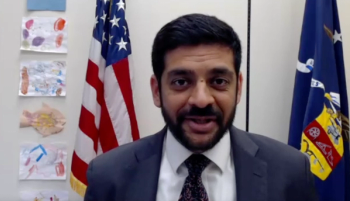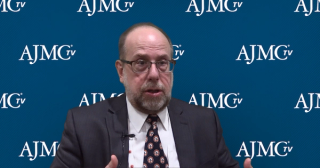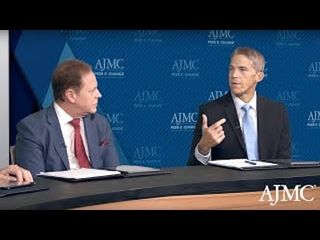
Insurance
Latest News

Latest Videos

CME Content
More News

The Federal Trade Commission (FTC) is preparing a lawsuit against the 3 largest drug middlemen over their use of rebates for insulin and other drugs; Sen Bernie Sanders (I, Vermont) feels confident that Novo Nordisk will cut Ozempic and Wegovy costs after hearing; CMS proposed a payment rule that would increase Medicare reimbursement for hospital outpatient departments by 2.6% next year.

After evaluating the association between the expanded Medicare Advantage supplemental benefits and plan composition, authors determined that adoption was not associated with large demographic shifts in enrollment.

A long-awaited report from the Federal Trade Commission (FTC) finds that vertical integration and consolidation have worked against consumers and independent pharmacies.

Researchers link vaccination and reduced asthma symptoms; providers warn against overburdening and security risks; insurers’ practices lead to questionable diagnoses

Insurers continue to raise consumer costs despite covering fewer drugs and having more drug coverage restrictions; the Biden Administration is investing hundreds of millions of dollars to train geriatricians; the Federal Trade Commission has opened an investigation into Teva Pharmaceuticals after the company refused to take down patents for its asthma and chronic obstructive pulmonary disease inhalers.

The use of Plan B fell by 60% in states that implemented near-total abortion bans after Roe v. Wade was overturned; the Biden administration will impose inflation penalties on 64 prescription drugs in the third quarter of 2024; the FDA recently released draft guidance to ensure that drug companies and medical device makers enroll more women and people of color in clinical trials.

On this episode of Managed Care Cast, we're talking with the author of a study published in the June 2024 issue of The American Journal of Managed Care® about how annual high-deductible insurance plans increase maternity care costs when pregnancies cross 2 calendar years.

What We’re Reading: Surging Global Dengue Cases; EHR Blocking Ban Finalized; Weight-Loss Drug Access
The CDC issued a warning to doctors on Tuesday to look out for dengue cases amid a global surge; HHS has finalized disincentives to prevent health care organizations from unreasonably blocking the exchange of electronic health record (EHR) information; patients in some states, like West Virginia, cannot afford weight-loss medications due to the high costs and lack of insurance coverage.

Beneficiaries who switched from traditional Medicare to a Medicare Advantage plan experienced no additional protection from medical costs compared with those who stayed in a traditional Medicare plan.

A federal appeals court has ruled a key part of the Affordable Care Act (ACA) unconstitutional, which allows a health task force to require insurers to cover preventive health measures without out-of-pocket costs; the FDA’s recent decision to authorize 4 menthol vaping products drew harsh criticism from pediatricians and antitobacco groups; rising health care prices are lowering American wages and causing job losses.

The US Preventive Services Task Force recommends that kids 6 years and older with a high body mass index receive intensive behavioral interventions; Amazon’s pharmacy unit is expanding eligibility for RxPass to patients enrolled in Medicare insurance plans; Sen Bernie Sanders (I, Vermont) is trying to lower the prices of popular antiobesity drugs.

The rate of uninsured Americans will rise to 8.9% over the next decade; Senator Bernie Sanders (I, Vermont) wants a government watchdog to investigate why women are still being charged for contraception considered free under federal law, and proposed Medicare Advantage Star Ratings target top performers.

Over $3 billion in payments were issued to health care providers and suppliers; a recent poll highlights growing demand to alleviate medical debt; preliminary data show a decrease in uninsured individuals since 2019.

Patients with diabetes who have private insurance are more likely to be prescribed a continuous glucose monitor (CGM) compared with those with government insurance, says Chase Hendrickson, MD, MPH, Vanderbilt University Medical Center.

Ali Khawar, principal deputy assistant secretary with the Employee Benefits Security Administration (EBSA), US Department of Labor, explains how the Mental Health Parity and Addiction Equity Act (MHPAEA) aims to address the mental health crisis in the US.

The authors explore the economic impact and accessibility challenges of new Alzheimer disease drugs under the Inflation Reduction Act, with emphasis on Medicare, pricing, and health care equity.

New estimations show a historic increase in health spending last year, which is projected to account for 19.7% of the gross domestic product by 2032.

People experiencing homelessness face significant barriers to health care access, leading to higher rates of hypertension even among those with health insurance.

During the CMS Health Equity Conference, health care leaders shared groundbreaking strategies to integrate health equity into value-based care models, aiming to enhance patient outcomes and reduce costs.

Jeff Levin-Scherz, MD, MBA, population health leader at WTW, explains that obesity care in the US is inconsistent and costly, with significant gaps across Medicare, Medicaid, and employer-based insurance.

This cross-sectional analysis of commercially insured delivering mothers suggests that greater out-of-pocket spending is incurred when pregnancy spans 2 years, causing them to face out-of-pocket limits twice.

Uninsured rates among minority groups plummeted between 2010 and 2022; Democrat lawmakers are challenging drug patents that they believe are deliberate attempts to eliminate low-cost, generic competitors; the National Institutes of Health (NIH) is piloting a nationwide network for primary care research.

During the CMS Health Equity conference, the “Implementing Health Equity Through Value-Based Care for People in Medicare” session featured a series of expert speakers who shared insights on pioneering strategies designed to advance health equity.

The Bundled Payments for Care Improvement program was associated with improved quality of skilled nursing facilities in hospital referral networks for patients undergoing surgery for joint replacement.

FDA advisers have voted against the use of MDMA as a post-traumatic stress disorder (PTSD) treatment; House members have expressed support for the 340B drug discount program but disagreed on whether it needs tighter regulation; a federal judge sided with SCAN Health Plan over CMS about incorrect 2024 Star Rating calculations.















